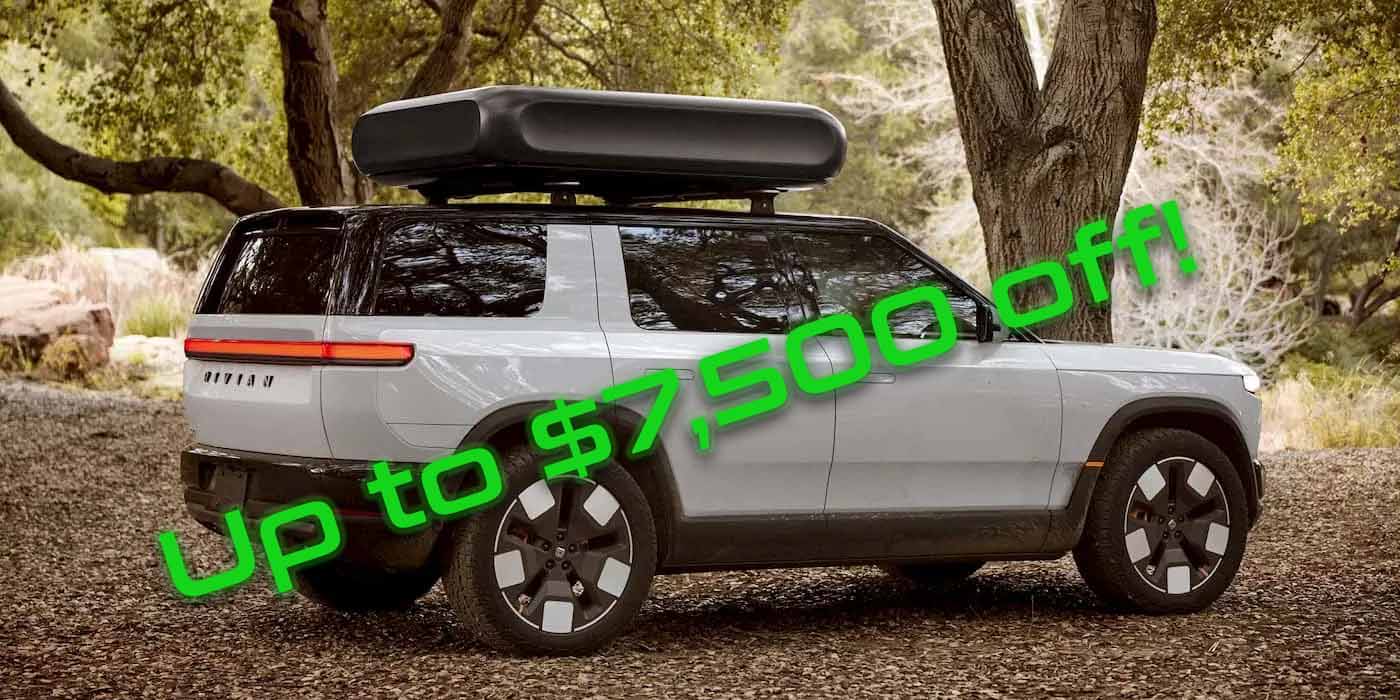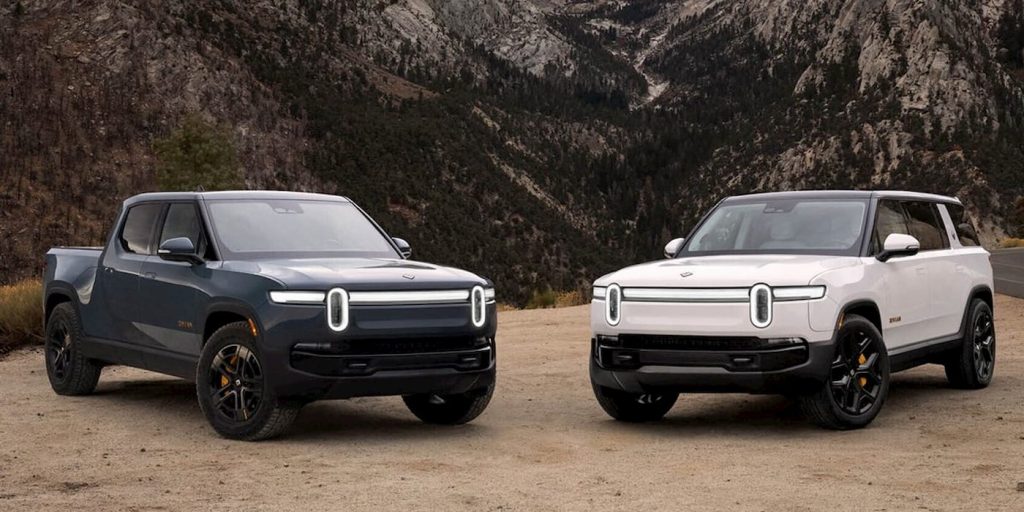The EV tax credit may be going away, but Rivian EVs could still qualify in 2026, including the R2

While the current majority in DC shared intentions to likely kill the existing $7,500 federal EV tax credit, some language in a (very fluid) proposal suggests that not all automakers will be immediately affected. For example, Rivian is an American automaker whose sales are young enough that US consumers might still be able to take advantage of the tax credit, and that could also include the upcoming R2 EVs.
The past two years, federal tax credits for EV sales through the Inflation Reduction Act have done wonders for US adoption, helping give consumers the last little push they needed to go all-electric with at least one vehicle in their home.
It was great while it lasted.
These days, the current administration has its sights set on a delusional idea of “success” from the past, trying to breathe new life into dying industries like coal and, yes, combustion vehicles. EV adoption was never going to happen overnight, but recent discussions among the GOP stating it is likely to kill the federal EV tax credit is disheartening news.
Advertisement - scroll for more contentWe’ve already long-surpassed “critical mass” in the US adoption process, so it’s a fair wager that EVs are here to stay and will continue increasing their market presence. While most makes and models are likely to be disqualified from federal EV tax credits after 2025 (only about 20 or so currently qualify these days), some proposed exceptions in place will allow credits to continue for American companies like Rivian, for example.

Proposal states Rivian EVs could qualify for tax credits after 2025
According to Reddit user u/FiveDollarHoller, they are a lobbyist in the midst of Washington’s discussions to repeal the federal EV tax credit. According to the post, the US House Ways and Means Committee will finalize its tax title this week.
According to proposal shared by reliable source close to the lobbyist, a slew of credits will be eliminated on December 31, 2025, including the following:
- Used EV credit
- Clean Vehicle Credit
- Qualified Commercial Clean Vehicle Credit
- Alernative Fuel Vehicle Refueling Proprty Credit
We share the same sentiment as the lobbyist in that this proposal remains fluid and discussions are ongoing, so the details of these plans could have already changed by now and most likely will change before everything is approved through the necessary government channels.
One interesting tidbit in the current proposal is an exception within the $7,500 Clean Vehicle Credit for OEMs that have not sold 200,000 vehicles by December 31, 2025. If that exception makes its way into the final legislature, EVs from Rivian, including the R1S and R1T, could still qualify for tax credits.
Better still, Rivian recently shared that it remains on track to begin scaled production and deliveries of its second flagship model, the R2, in 2026, meaning customers of that BEV could also qualify for federal tax credits.
At the end of 2024, Rivian had sold 51,579 compared to 50,122 a year prior and 20,332 deliveries in 2022. Per its recent Q1 2025 quarterly report, the American automaker targets 40,000 to 46,000 deliveries in 2025. By those numbers, that puts Rivian around approximately 168,033 total deliveries if it hits the high end of its 2025 outlook.
As such, Rivian’s numbers would fall below the 200,000 sales threshold outlined in the current proposal. Again, this is hearsay at most until we get a legitimate proposal publicized by the Capitol. Still, it’s a noteworthy potential perk for companies like Rivian if it comes to fruition. It could also incentivize more US consumers to purchase a Rivian since it could be one of the only OEMs that still qualify (along with Lucid, probably).
Per the IRS, despite being built in Normal, Illinois, the Rivian R1 models are not listed as qualified BEVs for the $7,500 tax credit. We will have to see how this all plays out in the coming days and months.
Per the Reddit post, the complete text of the EV tax credit repeal proposal is supposed to be shared today (Monday) at 2 PM. Once a bona fide proposal is in place, it will still need to be approved by the House Ways and Means Committee, then the House, followed by the Senate (which may be a lot more challenging to get approved).
We will monitor this process closely, which will likely last well into 2025, and will report on what EVs (if any) may still qualify for federal tax credits next year and whether that will include Rivian. Regardless, if you’re pondering the idea of purchasing a BEV (Rivian or not), you should try to take delivery before the end of the year because the federal EV tax credit doesn’t appear long for this world.
Disclaimer: Investing carries risk. This is not financial advice. The above content should not be regarded as an offer, recommendation, or solicitation on acquiring or disposing of any financial products, any associated discussions, comments, or posts by author or other users should not be considered as such either. It is solely for general information purpose only, which does not consider your own investment objectives, financial situations or needs. TTM assumes no responsibility or warranty for the accuracy and completeness of the information, investors should do their own research and may seek professional advice before investing.
Most Discussed
- 1
- 2
- 3
- 4
- 5
- 6
- 7
- 8
- 9
- 10